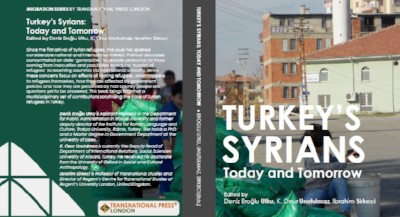by Lisa Beiswenger, PhD candidate in Anthroplogy
 On October 10, 2017, Professor Tomislav Longinovic visited Dr. Cohen’s Anthropology 7805: Human Mobility: The Anthropology of Migration. In preparation for the visit, the students read Longinovic’s Vampire Nation: Violence as Cultural Imaginary. The discussion meandered through a variety of themes from popular culture, mythology, and politics.
On October 10, 2017, Professor Tomislav Longinovic visited Dr. Cohen’s Anthropology 7805: Human Mobility: The Anthropology of Migration. In preparation for the visit, the students read Longinovic’s Vampire Nation: Violence as Cultural Imaginary. The discussion meandered through a variety of themes from popular culture, mythology, and politics.
 Through the book, Longinovic explores the vampire as a metaphor, “pointing to the Gothic associations of violence, blood, and soil in the writings of many intellectuals and politicians during the 1990s, especially in portrayals by the U.S.-led Western media of ‘the serbs’ as a vampire nation, a bloodsucking parasite on the edge of European civilization” (Longinovic).
Through the book, Longinovic explores the vampire as a metaphor, “pointing to the Gothic associations of violence, blood, and soil in the writings of many intellectuals and politicians during the 1990s, especially in portrayals by the U.S.-led Western media of ‘the serbs’ as a vampire nation, a bloodsucking parasite on the edge of European civilization” (Longinovic).
The class discussion began with a question about how refugees are treated in Serbia. While on the surface this question is simple, it actually has some deep cultural ties. First, some Serbians feel solidarity with refugees because they would also like to move to one of Europe’s wealthier countries. Second, stories of exile are written into the culture and thus tie into national identity. Finally, there are Biblical and mythological overtones at play: one must be hospitable because one never knows who the guest really is.
Next, the students discussed how the vampire myth ties into nationalism. Vampirism is the perfect metaphor for nationalism because it is the past consuming the future. The vampire does not consume the old and enfeebled; he eats the young, the healthy, and the intelligent. The vampire further exemplifies nationalism because of his ties to blood and soil. Myths of vampires spring up along the zones of cultural transition, the borders, where there is ethnic mixing – people who are not one or the other.
As the class concluded, we discussed how portrayals of vampires have changed over time. Early vampires are dust and dead bodies. It wasn’t until they were aestheticized by the Gothic imagination that they transformed into something attractive and graceful. Today, there is the “vegan” vampire (ex. Louis from Interview with the Vampire, Angel from Buffy the Vampire Slayer, Edward from Twilight), a vampire of remarkable beauty who can live indefinitely but who drinks from humans begrudgingly.
Longinovic, Tomislav. Vampire Nation. eDuke Books Scholarly Collection. http://read.dukeupress.edu/content/vampire-nation



